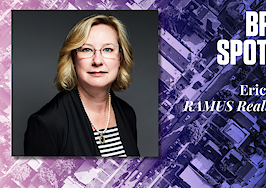The results of a property technology survey, published last month as part of Intel, Inman’s data and research arm, resonated with me for several reasons.
I’m a self-professed computer nerd and take pride in being an early adopter when it comes to all things tech — especially when it comes to making my business run faster and smarter. Some of the responses surprised me, while others were predictable. Here are a few of my thoughts on the survey’s findings.
Tech stack struggles
I’m dismayed that we are still cobbling together pieces of tech to run our businesses. When I opened my brokerage over 16 years ago, I was frustrated that I could not find an end-to-end solution to run the company. Through the years I’ve tried various systems that promised to streamline operations and connect the separate pieces. But nothing I’ve tried, even recently, works flawlessly. I don’t understand why this is so hard.
As a broker who runs an indie office that operates a highly productive “teamerage model” I need things to flow smoothly between the front end and the back end. We’ve got so many software platforms, most of which are siloed in their own little world. Even when we can connect them, I’ve found many of the processes flawed.
For example, we use Dotloop for our contracts and transaction management. I linked Dotloop last year to the company CRM platform and to our back office’s deal tracking and commission payout program. The back office company started charging me an additional fee to link the two, which may have been worth it — if it linked correctly. After six months of the two systems fighting each other and troubleshooting the issues, we shut the connection off.
The same CRM platform added a back office module to their offerings and I signed up for that. I spent numerous hours importing the transactions, recreating the history of the transactions year-to-date so the commission data was correct, only to dump that system — twice — due to flawed commission calculations.
I ended up using a calculator to double-check that the commission splits were correct, which pretty much defeats the purpose of spending money on a platform that’s supposed to do it for me.
Almost two decades after I first tried to build an in-house end-to-end system, I’m still not there. I use some proprietary software I’ve had built, but my system is really piecing together the best tools I can find in each category that fit my needs.
More tech, more costs
All professionals also need to be mindful of costs. The CRM program that I was using (up until recently) is trying to build an end-to-end system, but it’s just frustrating as a user when the modules just don’t work correctly, and when the monthly bills creep up higher and higher.
For example, the company added a way for us to pay our agents directly via ACH payments, by connecting a payment program to the platform. That sounds great, but, of course, it came with an additional per transaction fee. I already pay my agents via ACH, same-day payments right to their bank accounts for free through my own bank. Why would I pay to do it through the back office module if I can do it for free now?
Cost creep is real. That program that you buy into for a fixed amount may have great add-ons and extra modules — for more money. One tech solution I purchased required a 12-month contract, which I signed. The salesperson said it could connect to this and to that and solve problems I was having with tracking metrics. After purchasing the system I found out, yes, it could do all that I asked, but required add-ons and other website subscriptions to do it all.
The single sign-on fee of $499 monthly quickly ballooned with a $250 extra fee from this other program and $45 a month from another one and soon I was approaching almost double the expected cost.
The survey found that about 40 percent of respondents spend less than $500 per year per agent, and 30 percent spend between $500 and $1000. I spend well more than $1000, but I also know that our office pays for many things that other brokerages may not do for their agents.
I consider tech to be vital to our business, and providing that to my entire office is one of our value propositions. Our office pays for many services that others may consider agent expenses, but then again, we are run more like a teamerage. If I’m paying for the lead generation, the CRM and everything they need to do business, then they need to use the systems and tools provided.
Agent adoption
This brings me to the sticky subject of agent adoption (or non-adoption). I’ve found that my office is pretty much divided in thirds. One-third will embrace all the tech and tools they are given and “drink the Kool-Aid”. One-third will do it because I strongly encourage it. One-third is just fine doing things their own way and only use tech tools when required.
An indie brokerage I work with in the Midwest with 25 agents only pays for the company transaction management platform. They give agents a list of suggested programs but it is up to the agents to pick and choose (and pay for) what they want to use. The only required software the agents must use is the company’s Zipforms account for transaction management.
I see this practice being much more common in brokerages than in my own model. When agents have the freedom to choose and must pay for their own tech, they are more likely to use it.
It can be discouraging as a broker to pay for tech solutions that are meant to make agents’ lives easier only to see it not be used. A few years ago, I worked with a company that was developing an app that could be used for agent safety. Agents would “clock in” at a showing and then had to clock out again when they left the appointment. If they did not mark themself safe after a certain amount of time, an alert would be sent to the agent’s emergency contacts with the agent’s showing info and location of the property.
I presented the app to my agents and set us up on a company-paid plan for everyone. Not a single agent downloaded the app. It didn’t matter to the agents that I was paying for the program. Some of my agents said they didn’t want the app tracking them — even if it was for their own safety. Some didn’t see a need for the extra log-in/log-out. Some didn’t feel like downloading yet another app to their phone.
This is an extreme example of zero adoption, but it makes the point: Whatever the reason, no matter how good the intentions of the broker or how the benefit outweighs the risks (stay safe and stay alive), if the agents don’t buy into it the tech won’t be used.
Agent support
The survey asked leaders about their biggest concern in purchasing tech and 53 percent replied that it was to provide support for their agents, 30 percent said it was to provide agents with a competitive advantage and only a handful of respondents said it was to for a recruiting draw. Yet if you read recruiting emails and ads from brokerages, many seem to scream that they are tech-forward, tech-savvy and provide the best tech to their agents. Why?
The purpose of the tech should not be tech for tech’s sake. It should be tech to support the agents in their business. We should be writing real estate property ads that describe the benefits, not the features; sell the sizzle, not the steak. Brokers should describe the benefits their tech offerings bring to the agents, not the tech itself.
For example, I am onboarding an agent right now who came from a large franchise. She was there a year, but when I asked her where her leads were stored so we could import them to her new CRM, she looked like a deer in the headlights. She replied “In my Zillow and OJO dashboards.” Some leads were getting listings through the MLS, some were not. Others were saved in folders in her Gmail. That was how she stored things and followed up on contacts.
I set up her CRM log-in and showed her how she could manage all her leads in one place and the lightbulb went off. She understood how this could save her time and hassles. If I had just said “Here’s your new CRM program and how to use it,” it would not have made sense that she should log in every day.
At the end of the day, the broker should exist to support the agents. Period. You create a tech stack to help run the office and also to support the agents. I honestly don’t know if there will ever be an end-to-end tech stack that solves all of our problems. I would love to connect these silos and have a single login rather than the 17 tabs that are open right now in my browser.
I do know that the system I am using works for me right now. I’ll add or subtract tech as I find new systems that fill a gap, or as programs I am using fail to serve the need. I’ll continue to try new things and be an early adopter.
Sometimes this works well and gives my brokerage a competitive edge in our market. Other times it just drives my agents crazy with my newest idea that may or may not be incorporated into the tech stack after a test run. That’s part of the joy and freedom that comes from running an indie brokerage.
Erica Ramus, MRE, is the broker/owner of RAMUS Real Estate. You can follow her on Twitter or LinkedIn.













